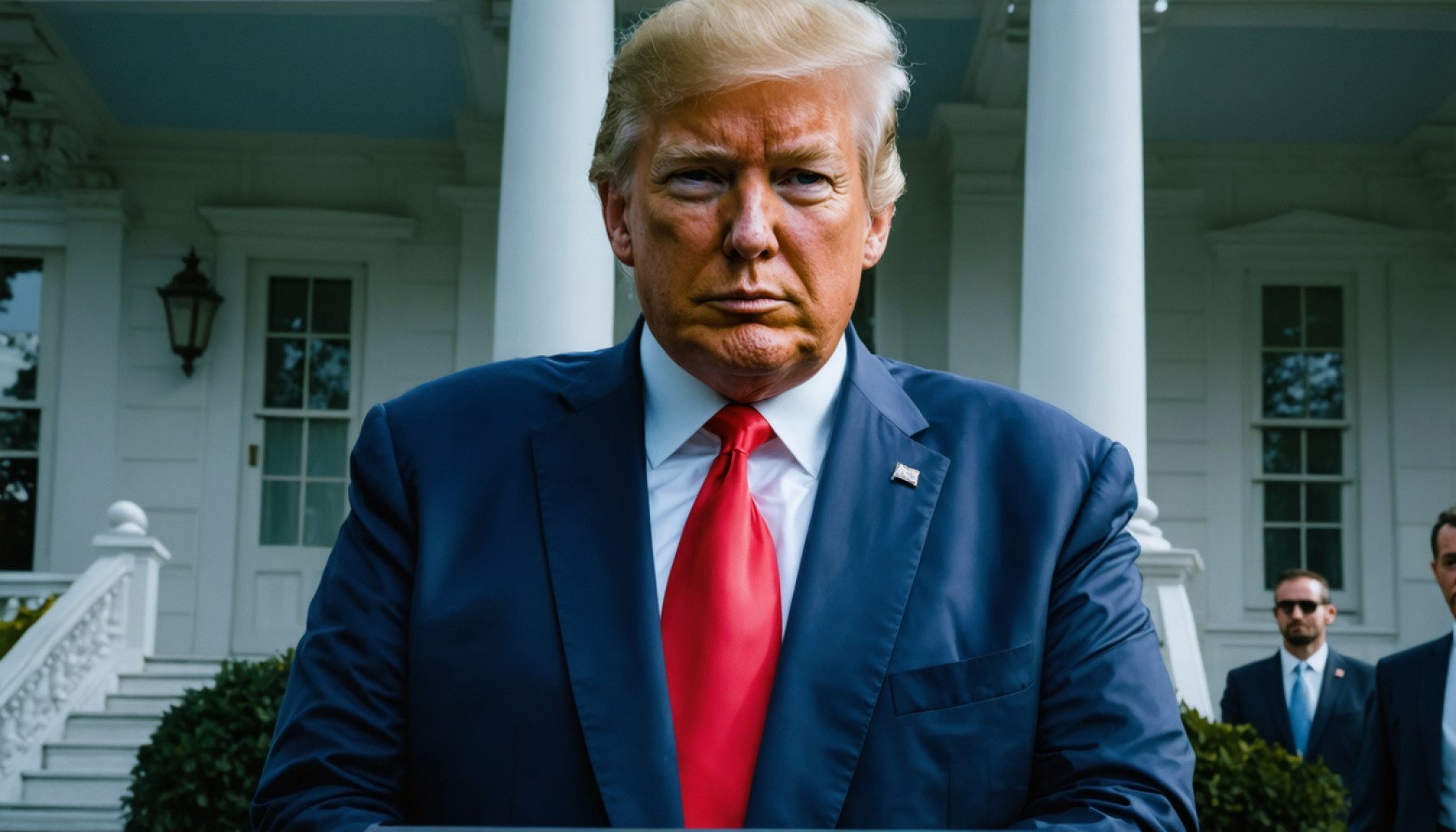- President Donald Trump signed a landmark crypto bill signaling a new era for decentralized finance (DeFi) in America.
- The legislation repealed an IRS rule that conflicted with DeFi’s inherent nature by requiring tax data collection from decentralized service providers.
- Bipartisan support in the Senate (70–28 vote) highlighted concerns over privacy infringements and bureaucratic burdens imposed by the IRS rule.
- The repeal is expected to promote innovation in digital finance and allow DeFi platforms to operate without centralized data collection.
- The bill signifies a shift towards a regulatory framework that supports cryptocurrency innovation without compromising user privacy.
- With the DeFi broker rule abolished, the U.S. could lead a blockchain-driven digital economic renaissance.
In a historic moment for the intertwining worlds of finance and technology, President Donald Trump has etched his name onto a piece of legislation that shifts the ground beneath America’s digital asset sphere. When the ink dried on the new crypto bill, it did more than repeal an IRS rule — it sent a signal that a new era for decentralized finance, or DeFi, had arrived.
Decentralized finance promises a world of financial services that bypass the traditional gatekeepers — the banks and brokers — enabling transactions directly between unrelated users on blockchain networks. This empowerment of individuals with unprecedented control over their assets faced a hurdle in the IRS’s DeFi broker rule, a relic of the Biden administration. By demanding tax returns from decentralized service providers, akin to how central brokers operate, the rule posed a paradox; DeFi by its very nature shuns centralized control and can’t collect user identities like traditional financial entities do.
Support for dismantling this rule was robust, transcending party lines in Washington D.C. The Senate passed the bill to abolish it with a decisive 70–28 vote, underscoring the argument that imposing such requirements on DeFi platforms not only jeopardized the infancy of this transformative technology but also threatened the privacy rights of countless users.
Beyond the legal shift, the bill kindles broader implications for the future of digital finance in America. Congressman Mike Carey argued that the DeFi broker rule would force mountains of paperwork upon the IRS, volumes of which it was ill-equipped to handle, creating a bureaucratic nightmare rather than a coherent regulatory environment. By scraping the rule, there’s now breathing room for innovation to flourish in this revolutionary financial segment, paving a pathway towards what many envision as a golden age for digital currencies.
Trump’s move has resonated within technology and economic circles, framing the debate around privacy and innovation not as mutually exclusive but deeply intertwined. Even as the Department of Justice shuttered its proactive crypto investigation unit, there’s a clear shift towards establishing a regulatory environment that acknowledges the unique nature and challenges of cryptocurrencies without stifling their growth or the privacy of their users.
With the DeFi broker rule now relegated to history, the stage is set for the U.S. to cultivate a blockchain renaissance, fueling a digital economy that promises prosperity and privacy hand in hand. This law serves as a clarion call — the old walls of centralization have cracks, and through them flow new rivers of opportunity.
How Trump’s New Crypto Bill Could Spark a Blockchain Renaissance in the U.S.
Understanding Decentralized Finance (DeFi)
Decentralized Finance (DeFi) revolutionizes traditional financial structures by removing intermediaries like banks and brokers. Transactions occur directly between parties via blockchain networks, granting users unprecedented control over their assets. This innovative approach promises greater financial inclusion, reduced costs, and enhanced privacy — yet it also brings new challenges for regulatory frameworks not accustomed to such decentralized structures.
How the Crypto Bill Changes the Regulatory Landscape
The recent crypto legislation signed by President Trump is groundbreaking as it repeals the IRS’s DeFi broker rule. This rule was initially established to require tax filings from decentralized service providers, similar to centralized brokers, despite the inherent structure of DeFi which resists centralized control and identity collection.
Key Facts About the Repealed Rule:
– Privacy Concerns: The rule threatened user privacy by potentially forcing DeFi platforms, which prioritize user anonymity, to collect identifiable data that they fundamentally cannot gather.
– Administrative Burden: Critics, including Congressman Mike Carey, highlighted the bureaucratic nightmare this would impose on the IRS, diverting resources into unmanageable paperwork without clear regulatory benefits.
The Impact on Innovation and Privacy
Innovation Boost: By scrapping these cumbersome requirements, the U.S. opens the door for creativity and innovation in digital finance. This deregulation allows developers and entrepreneurs to explore new DeFi projects without fear of compliance burdens.
Privacy vs. Regulation: The bill underscores a growing recognition that privacy and innovation can coexist. Striking a balance between necessary regulation and technological evolution is crucial for fostering a thriving digital economy.
Real-World Use Cases and Market Trends
1. Peer-to-Peer Lending: DeFi platforms facilitate lending and borrowing without traditional credit checks, enabling greater access to capital for underserved populations.
2. Decentralized Exchanges (DEXs): Users can trade cryptocurrencies directly from their wallets, safeguarding their digital assets from centralized exchange risks.
3. Stablecoins: Digital currencies pegged to reliable assets offer stability in volatile markets, driving adoption in everyday transactions.
Industry Insights and Predictions
– Blockchain Renaissance: With this regulatory shift, the U.S. is poised for a blockchain renaissance, inviting foreign investments, tech talents, and innovative startups to explore untapped potentials in the crypto and DeFi arenas.
– Increased Competition: As barriers lower, expect an influx of new DeFi products bringing competition and consumer choice. This could potentially drive down costs and enhance service quality.
Actionable Recommendations
1. Explore DeFi Platforms: Familiarize yourself with leading DeFi platforms like Uniswap and Compound to understand their functionalities and advantages.
2. Stay Informed: Monitor regulations as the U.S. shapes its stance on crypto and blockchain, ensuring your investments and operations remain compliant.
3. Prioritize Security: With greater access to decentralized tools, vigilance in security practices is crucial. Regularly update and secure your digital wallets.
Quick Tips
– Diversify Investments: Allocate funds across various DeFi projects to mitigate risks associated with market volatility.
– Engage with Community: Join forums and discussions to stay up-to-date with the latest in DeFi and crypto trends.
Related Resources
For more information on digital finance and blockchain innovations, explore CoinDesk.
With these insights, the promise of a digital economy that celebrates innovation and privacy serves not only as a financial prospect but as a societal evolution. Embracing these changes equips individuals and businesses to navigate the digital finance landscape confidently and efficiently.










